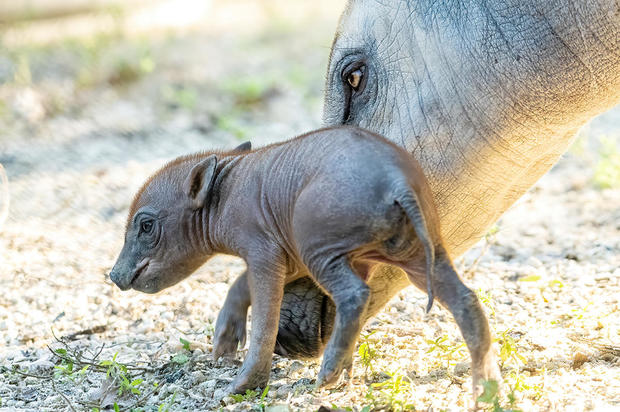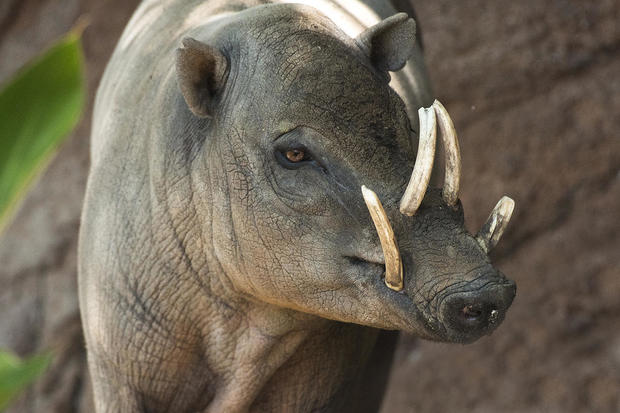Zoo Miami welcomes birth of "bizarre" babirusa
MIAMI - For the first time in its history, an endangered babirusa has been born at Zoo Miami.
According to the zoo, it was the first baby for nearly five-year-old Maggie, who came from the St. Louis Zoo, and Harry, a five-year-old male from the Audobon Zoo. The sex of the newborn is still undetermined as it remains isolated with its mother in a secluded holding area.
"Of the over 20 different species of wild swine in the world, the unique babirusa is considered to be one of the most bizarre looking. The word "babirusa," means "pig deer" in the Malay language. This is believed to come from the strange appearance of males whose tusks look like antlers growing on the top of its head," according to the zoo.
What makes the babirusa different from other pigs is that males have an upper set of tusks grow up through the top of the face and sometimes curl all the way back into its head. These upper tusks, combined with a second set on the lower jaw that curl out away from the head, makes them "strangest looking pig in the world," according to the zoo.
Females of the species do not have these tusks.
Native to Indonesia, babirusas have a lifespan of about 10 years in the wild but can live up to 20 years in captivity. They eat primarily fruits, roots, invertebrates, and small mammals, However, they will eat almost anything including on occasion, their own young.
Their greatest threats are habitat loss and hunting for food.





